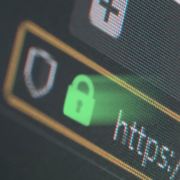The 2020 Cybersecurity Guide for Houston Businesses
Do you feel as though your cybersecurity policy is lacking? Even if it isn’t, it’s always worth performing a thorough review before the New Year arrives. Whether you’re running one of Houston’s smaller businesses or a large enterprise, a cyber attack could prove devastating for your reputation and bottom line. If you’re ready to prepare your defenses for 2020, here are the ways you need to do so.
Turn to two-factor authentication
Having a strong password is no guarantee that you’ll keep your business’s data safe. The more employees you have, the more ways there are for cybercriminals to breach your barriers. One way to make this less likely is by using two-factor authentication.
Two-factor authentication involves completing an additional security step after entering your username and password. For example, using a biometric thumbprint, accessing a code that’s been sent via text message, or generating an authenticator app code. In 2018, two-factor authentication use rose from 27% to 45%. If you want to join the growing number of businesses using it, 2020 should be your year to do so.
Update all software, everywhere
It’s really difficult to emphasize just how important software updates are. From the apps that lay dormant on your work devices through to the ones you use as part of your web hosting package, each one may need an update.
Software updates are about more than functionality. They’re used to patch vulnerabilities in the apps you rely on. If you and your employees don’t already schedule a time to update software, that needs to change. By patching vulnerabilities regularly, you decrease the number of flaws in your system.
Strengthen your approach to backups
Severe data losses often occur without warning. It’s easy to lull yourself into a false sense of security and believe that you won’t be affected by one. But if you do lose a lot of data, you’re likely to lose a lot of money with it.
According to some statistics, the annualized failure rate for hard drives is 1.8%. Although that means you’re likely to not experience a failure, it’s not worth taking the risk. Consider the impact of losing 24 hours’ worth of work in your industry. Depending on the nature of your business, it could result in significant financial losses.
Protect your phone numbers
The chances are, both you and your employees have used your phone numbers to sign up for services. As so many accounts are now linked to people’s phone numbers, they act as key pieces of vital information.
If a hacker can successfully access someone’s phone number and the accounts associated with it, there’s a chance they can access your business’s systems too. Make sure you and your employees add secondary security codes to your phone accounts. In doing so, you can prevent significant data losses.
Adopt a password manager
If you’re already taking a common-sense approach to using passwords, you’ll have different ones for each account. You’ll also make sure they’re not easy to guess. Naturally, as many people now have at least a dozen accounts for various services, keeping track of all your passwords becomes tricky.
There are a couple of options for getting past having multiple passwords. The first is to not vary your passwords, which isn’t advisable. The second is to write them down, which presents security risks in itself. The third and best option is to use a password manager. As a digital locker that keeps all your passwords safe, and that helps you vary them for different accounts, it allows you to get the best of both worlds.
As 2020 isn’t far away, now’s the time to start reviewing your security policies. With a robust approach, you’ll keep criminals at bay and ensure everything in your business runs smoothly.























